'The Longest Shadow': Guantanamo Bay and a new rulebook for a new war
ABC News airs a five-part documentary series on the 9/11 attacks, Sept. 6-10.
The sky was clear and blue. The gray towers stood, both guarding and welcoming, at the gateway to the nation. Out of nowhere came the impact, the blaze, the smoke -- and then the towers were gone. When the dust and flames finally cleared, a new world had emerged.
The death and destruction defined that late summer day and remain seared in the minds of those who lived through Sept. 11, 2001. From the ashes and wreckage rose a new America: a society redefined by its scars and marked by a new wartime reality -- a shadow darkened even more in recent days by the resurgence of fundamentalist Islamist rule in the far-off land that hatched the attacks.
Twenty years later -- with more than 70 million Americans born since the crucible of the attacks -- the legacy of 9/11 remains. From airport security to civilian policing to the most casual parts of daily life, it would be nearly impossible to identify something that remains untouched and unaffected by those terrifying hours in 2001.
This week, ABC News revisits the 9/11 attacks and unwinds their aftermath, taking a deep look at the America born in the wake of destruction. "9/11 Twenty Years Later: The Longest Shadow" is a five-part documentary series narrated by George Stephanopoulos. Episodes will air on ABC News Live each night leading up to the 20th anniversary of the attacks, from Sept. 6-10. The series will be rebroadcast in full following the commemoration ceremonies on Saturday, Sept. 11.
Part 4: No trial, no conviction, no release
When police arrived at Lakhdar Boumediene's office in Bosnia in late 2001, Boumediene says that "they promised just a few minutes" of his time.
Two decades later, after years of unjustified suffering on a fortified island military base halfway around the world, Boumediene says the reality is clear: "They destroyed my life."
In the frenzied post-9/11 hunt for terrorists, the U.S. naval base at Guantanamo Bay was pressed into service as what then-Defense Secretary Donald Rumsfeld famously called the "least worst option" to house suspected terrorists captured in what officials described as the new Global War on Terror.
At its height, the facility held 800 men, each supposedly having varying degrees of ties to terrorists or terrorist groups. According to American intelligence, some of the inhabitants were known to be hardened veterans of anti-Western terrorism, including some of the alleged masterminds and organizers of the 9/11 attacks. Some had tenuous, though concrete, connections to suspected terrorists. And still others were simply at the wrong place at the wrong time.
For Boumediene, merely having worked with a sibling of a known al-Qaeda terrorist may be what earned him a seven-and-a-half-year stay at a jail that has, to many, come to symbolize the mistakes and excesses of America's response to the hijackings and killings of Sept. 11, 2001.
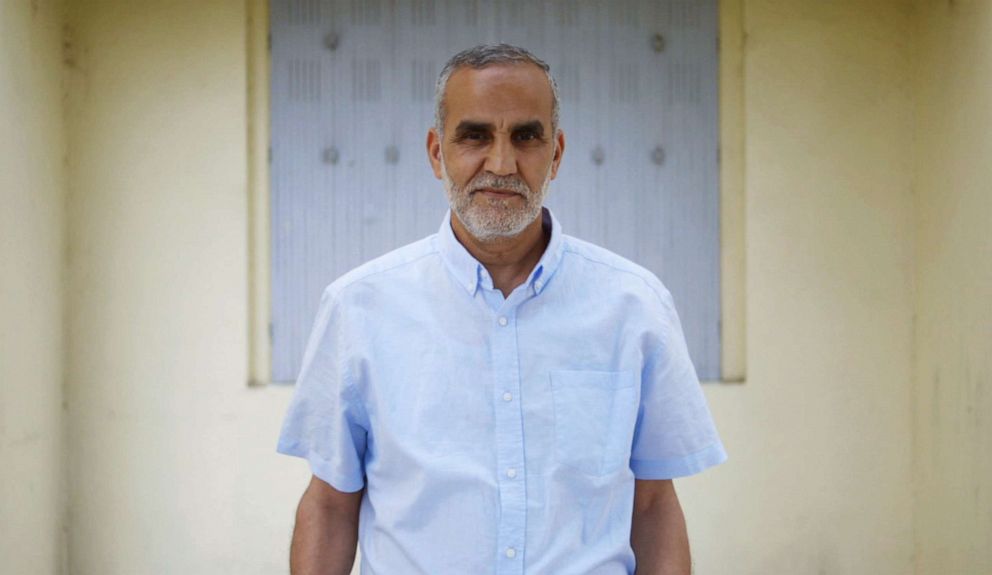
"Twenty years later, I can't find the truth behind my imprisonment in Guantanamo," Boumediene said.
Located some 500 miles southeast of Miami, Guantanamo spans a pristine stretch of shoreline on the Cuban coast. In many ways, the base looks and feels like a small Florida town, complete with beautiful beaches, an Irish pub and a McDonald's. It earned a slice of fame in the 1992 Tom Cruise film "A Few Good Men," but it is now known around the world as the home to some of America's darkest hours.
"Anybody who does not know about Guantanamo I think today would be surprised at some of the things that went on there," said Marion "Spike" Bowman, the former deputy general counsel for national security at the FBI.
Despite years of public outcry over conditions in the prison camp there -- and disputes over the legal justification for its existence -- 39 detainees still remain within its walls.
"The creation of Guantanamo was the right action at the beginning," said Roger Cressey, a former top counterterrorism official on the National Security Council during the administrations of both George W. Bush and Bill Clinton. "And then it turned into Frankenstein's monster."
Gitmo, as many know it, wasn't meant to be a monster, but a legal "black hole." Former officials said Guantanamo was born out of necessity as a place to house those who needed to be held and interrogated when the U.S. attacked Afghanistan in order to destroy the terror network that committed the 9/11 attacks.
The Bush administration determined that the Sept. 11 attacks were more akin to acts of war than a crime, so those captured in connection with 9/11 would be "enemy combatants" who would be tried in military courts -- instead of criminals who would have constitutional protections in the American legal system and would be tried in civilian courts.
"We worried about bringing these terrorists into the United States for a couple reasons," said Alberto R. Gonzales, a former Bush White House counsel and U.S. attorney general who was deeply involved in the decision-making. "We felt the American people wouldn't stand for it, to have these terrorists on American soil. We also were unsure about what rights -- constitutional rights -- that they would automatically secure once they were on American soil."
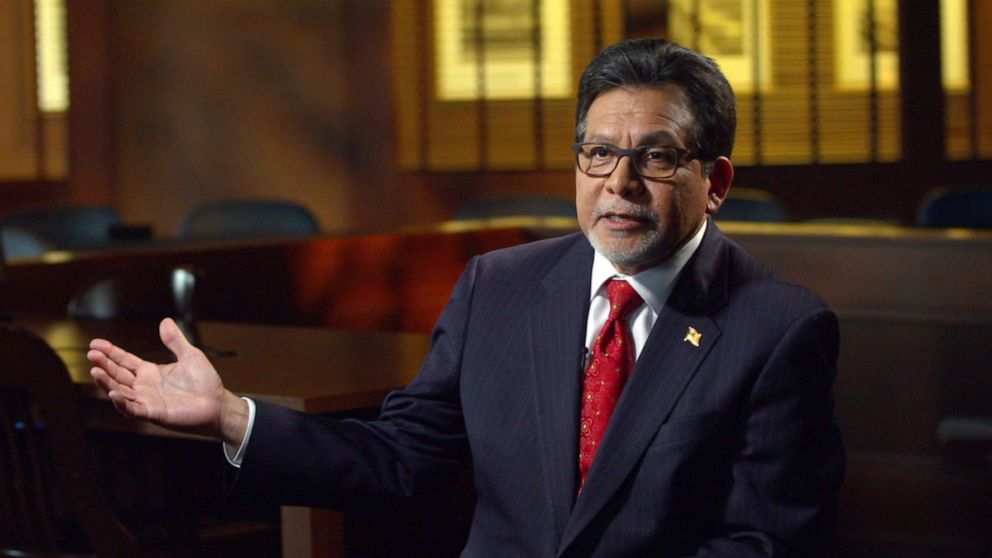
The Bush administration sought to "deal with them in a way that was out of the U.S. legal system," said retired Col. Lawrence Wilkerson, a former chief of staff to Secretary of State Colin Powell.
Guantanamo Bay was the answer. The detainees would be transferred to the detention facility, where they would be interrogated and then tried in something called "military commissions," a cross between a standard trial and a military court martial, which had been used -- albeit rarely -- in times of war. Within months of Sept. 11, Bush issued the order directing Rumsfeld to organize the commissions, effectively circumventing the U.S. court system. Separately, Rumsfeld also authorized 18 interrogation techniques in late 2002 that could be used on detainees said to be resisting -- including slapping and sleep deprivation.
The two orders would come to define Guantanamo and serve as the backdrop for the debate over America's actions in the name of a War on Terror that continues to rage.
At the time, "there was a lot of concern about a second wave" of attacks, "and being alert for that," Gonzales said. It was that sense of urgency to gather intelligence on possible follow-up attacks that led to Guantanamo's worst abuses, according to Bowman, who also had been a naval intelligence officer and assistant judge advocate. Bowman eventually attempted unsuccessfully to talk Pentagon officials out of the abuses that allegedly occurred there.
It was under those desperate circumstances that American officials resorted to the darker means of extracting information, called "enhanced interrogation" by some -- and "torture" by others. Fearing more attacks, U.S. officials sought approval for the techniques, which included extreme physical and psychological stresses.
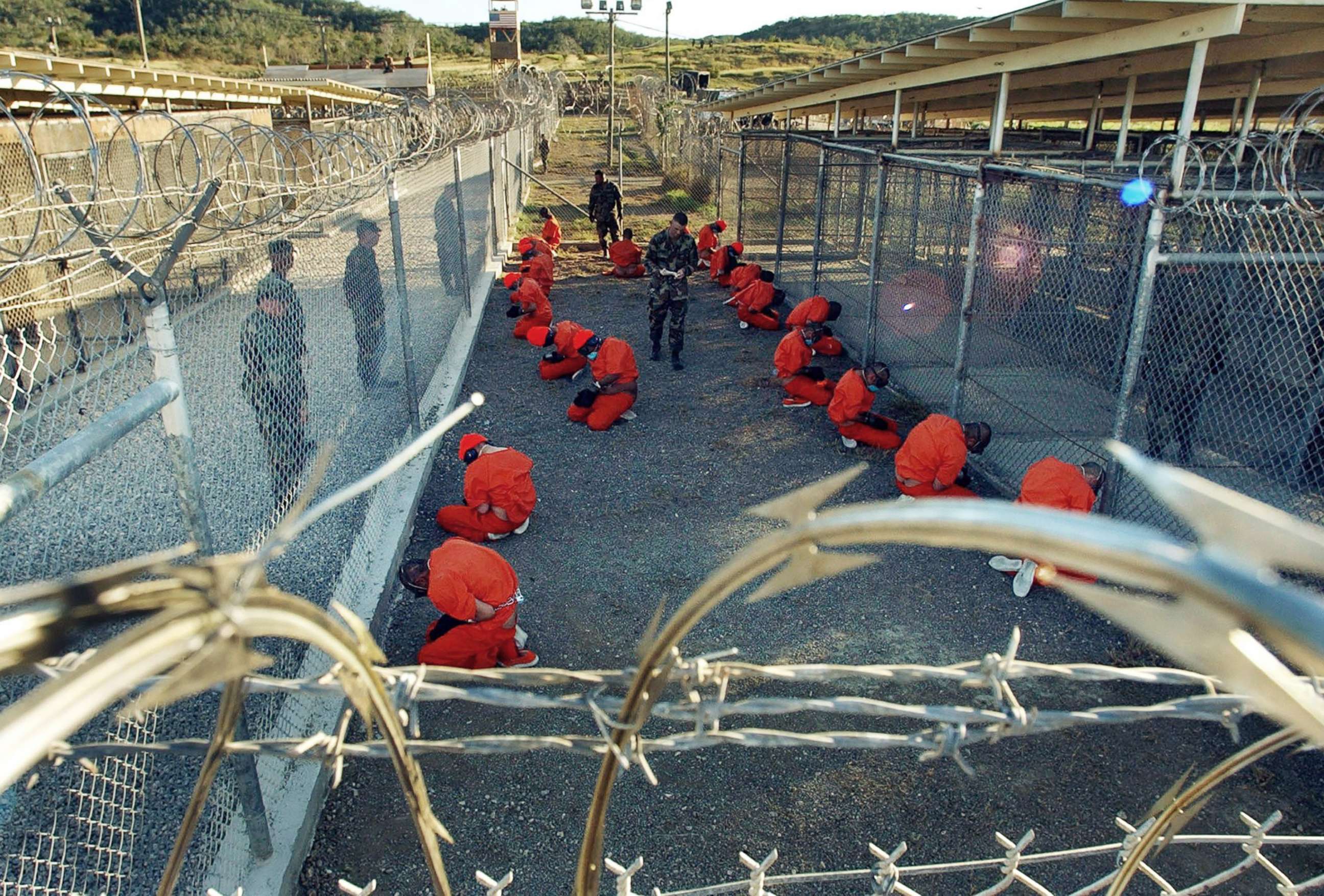
The newly approved interrogation methods set the stage for a dramatic intragovernmental conflict. The dispute pitted two groups of investigators -- one from the military, the other largely made up of intelligence officials -- against one another.
The military investigators, dubbed the Criminal Investigation Task Force, sought to weed out innocents from the detainees. The intelligence officers, called Joint Task Force-Guantanamo, were dispatched to interrogate the detainees for information about future terrorist plots. Largely inexperienced in interrogation, they allegedly inflicted severe abuses on detainees who resisted questioning -- and then retroactively attempted to justify their methods through legal loopholes, according to documents and court cases.
Many experts, including Susan Burke, a lawyer who has represented Guantanamo detainees, remain unconvinced of the legality of the methods.
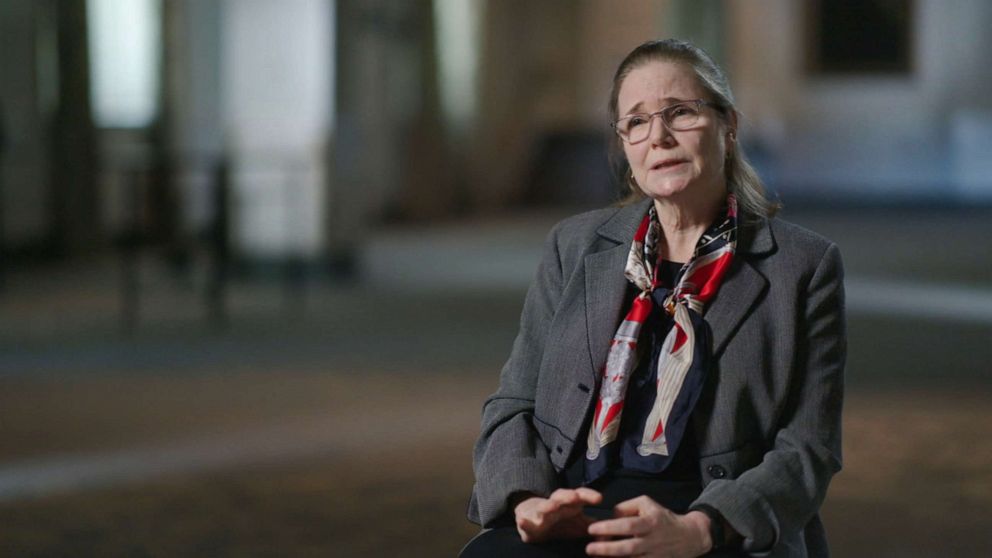
"It has been well-established that you cannot torture people," said Burke. "So, this notion that, somehow, because we use the vernacular of 'Global War on Terror,' that we can do whatever we want to other human beings? Wholly illegal."
Bowman became increasingly concerned by what agents based in Cuba were reporting back to FBI headquarters about what they had been witnessing a year after the 9/11 attacks. The dispatches described physical abuse and sexualized physical contact with the Muslim detainees, as well as duct-taping one prisoner's head and forcing another to remain in a cell flooded with light for months without darkness, causing "extreme psychological trauma," according to one FBI document.
Critically, Bowman said, the forceful means to extract intelligence didn't work in the first place, and then subsequently undermined efforts to gather reliable information -- ultimately shaping the public's image of the camp.
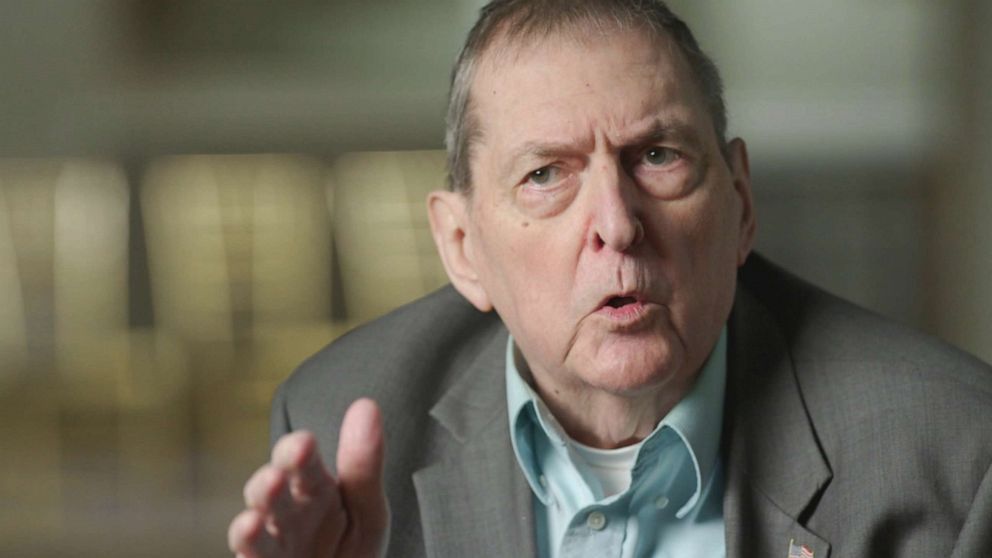
"They wanted to do what they thought would be faster to get information than the FBI's rapport-building type of activity," Bowman said. "My problem was the techniques they were using were not techniques that had ever been proven to be effective in interrogation."
Boumediene says he can still recall one night in particular -- during his early days at Guantanamo's Camp X-Ray detention compound -- when he says "they tried to break me."
"At two o'clock in the morning, the inspector said to the soldiers, 'Come on, make him run,'" Boumediene said. "They forced me to run with them, but I couldn't run because I was handcuffed. I couldn't run with them. When I would fall, they would pull me along the gravel … if I remember, ten days, 15 days like that, every day."
In Washington, the dispute over aggressive interrogation techniques, including questions of whether they were illegal torture and if they were an effective instrument of intelligence-gathering, gave way to a fight over the legal justifications -- and whether such practices were permissible under the Geneva Conventions, a 1949 set of agreements regulating the use of force during wartime. Mindful of those requirements, officials even used a specific nomenclature for those being held.
"We weren't calling them prisoners of war at that time, as I recall," Wilkerson said. "We were calling them detainees, because that was the term of art that didn't bespeak Geneva and so forth."
The Bush administration made the case that the Geneva Conventions did not apply to al-Qaeda terrorists, interpreting those guidelines as "an incentive to individuals to fight according to laws of war," Gonzales said, and asserting that the rules applied only to those fighting on behalf of the nearly 200 nations that signed the treaty in the wake of World War II.
"Because al-Qaeda had not been a signatory to the Geneva Conventions," Gonzales argued, "they would not automatically qualify for the protections -- and the same thing with the Taliban."
John Bellinger, who was the chief lawyer for the National Security Council on 9/11, said that denying accused terrorists protections under the Geneva Conventions had been a mistake.
"This opened us up to a huge amount of international criticism that we were holding detainees in Guantanamo … in a legal black hole, in a law-free zone," he said. "And to a certain extent, this was really true."
The legal conundrum was compounded by reports of the mistreatment of detainees. As Rumsfeld and other Bush administration officials lauded the new interrogation techniques, those who witnessed them expressed horror -- and news reports started to emerge depicting the extreme conditions detainees were forced to endure.
"Secretary Rumsfeld was told about much of this stuff," Bowman said in a recent interview. "He really just rolled it off. And that, frankly, rolls downhill."
In November 2002, Rumsfeld even jotted in the margin of a memo authorizing harsh interrogation techniques for "counter-resistance" by saying, "I stand for 8-10 hours a day. Why is standing limited to 4 hours?"
U.S. Air Force Reserve Capt. Mark McCary served as a judge advocate at Guantanamo, responsible for ensuring that Criminal Investigation Task Force interrogators drawn from each military branch's investigative agencies remained within their legal bounds. A veteran of a decade of deployments that focused on counterterrorism, he arrived on the island base with a duffle bag filled with law books. What he soon learned of the JTF-Guantanamo interrogations "did not comport with American values and principles that we're trained with, including justice, Geneva Conventions, and the basic equities of interrogation and training," he said.
McCary confronted military leaders and penned a series of memos outlining conditions at the camp and calling for intervention. The Pentagon ignored them.
"They didn't appreciate my opinion or my legal assessment," he said.
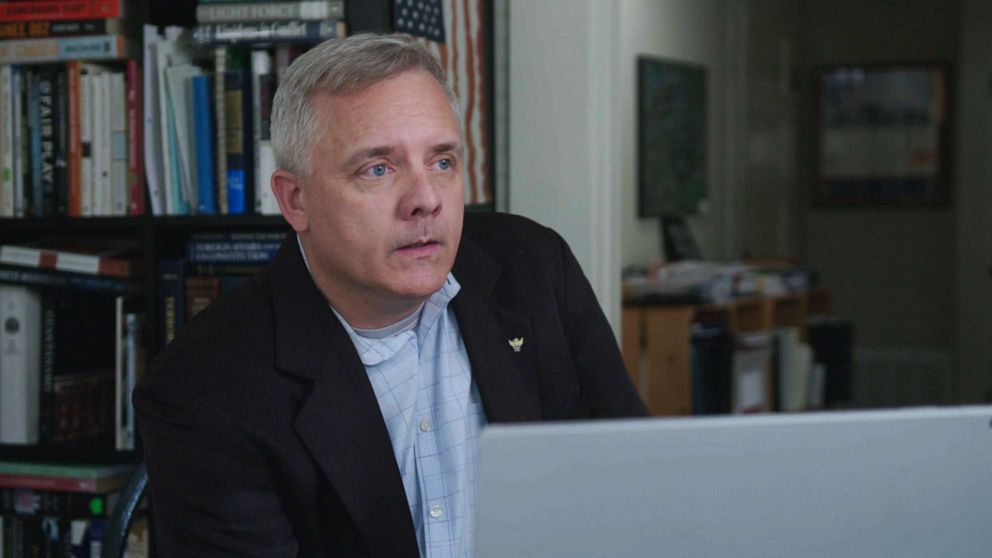
McCary redeployed back home. Guantanamo, he found, "was a career-ender" for him and for many judge advocates appointed as defense counsel or prosecutors in the military tribunals, he said.
Meanwhile, Bowman, unable to persuade the Pentagon to abandon its program of "enhanced interrogation," went to the press, he said. In early 2005, the New York Daily News ran a headline, "AT WAR WITH GITMO GRILLING."
"Military lawyers at the Guantanamo Bay terrorist prison tried to stop inhumane interrogations but were ignored by senior Pentagon officials, the Daily News has learned," read the story.
The article included details of a memo McCary had written outlining abuses at the prison camp. Bowman, who was quoted as an unidentified source in the story, characterized McCary as an "unsung hero."
"I thought people needed to understand that there were people on the scene, not just in Washington like me, but people on the scene who were seeing what was going on, who were trying to make a difference. And I wanted that known," he said.
McCary left his unit in March of 2003 and says he has not communicated with anyone at the Pentagon or the FBI since. What he witnessed at Guantanamo left him with scars of his own, he said.
"I desired to actually return to duty and could not do that because of a medical diagnosis: bipolar with PTSD," he said. "There was a time where I could've been a homeless vet … I struggled immensely with all of that."
Two decades and three presidential administrations have passed since 9/11, and Guantanamo remains open -- albeit as a shadow of its former self. Its most high-profile inhabitant, Khalid Sheikh Muhammad, who has confessed to plotting the 9/11 attacks, remains there in legal limbo. He stands charged with killing nearly 3,000 people in the worst terror attack in history, and is awaiting trial as his case resumed this week following a delay in pretrial motions.
"The fact that the individuals responsible for 9/11 are sitting there -- they have not been tried -- the system that was designed to bring them to justice has proven to be a failure," said Matt Olsen, the former director of the National Counterterrorism Center who was charged with closing the prison under the Obama administration.
Despite Guantanamo's complicated legacy and the moral burden it placed on the American conscience, many officials responsible for what happened there stand by their decisions -- and claim that the ends justified the means.
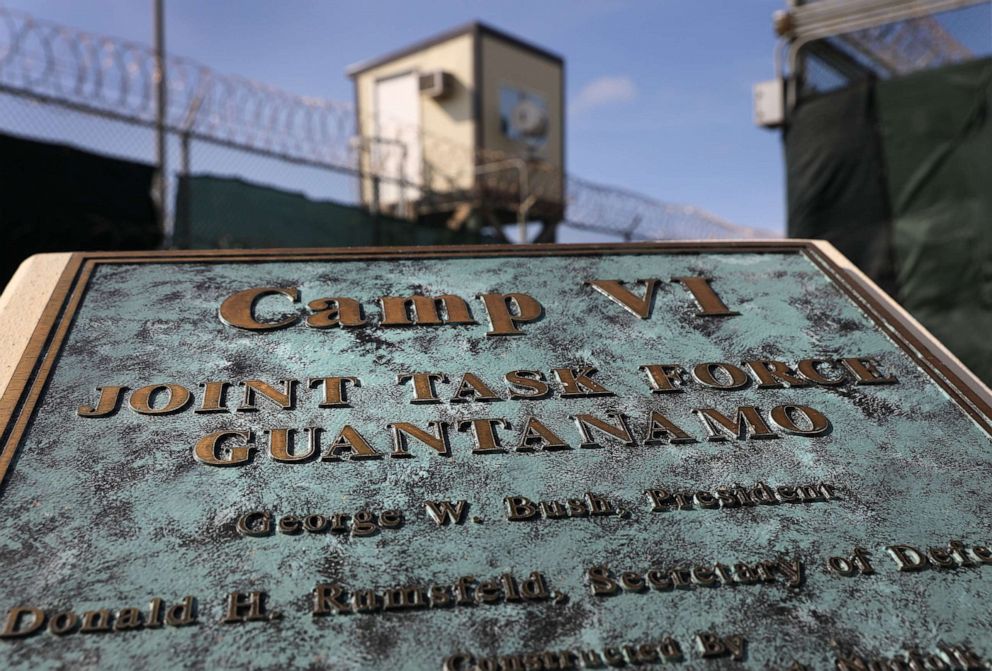
"To the families of the victims, 20 years later, I would say that, even though these individuals are simply detained and not brought to justice in a court," Gonzales said, "there is some level of justice in the detention itself."
Others feel differently.
"Looking back 20 years later, I think it was correct to treat the response to 9/11 as a war, as an armed conflict," said Bellinger. "But decisions that were subsequently made that flowed from that, the creation of military commissions, the decision not to apply the Geneva Conventions to the people who we were holding -- I think these were mistakes that were made by the Bush administration."
In 2004, three years after 9/11, Boumediene and other detainees were finally afforded legal counsel. By 2007, Boumediene's case reached the U.S. Supreme Court. The justices determined that Boumediene and other detainees were entitled to habeas corpus, the constitutional right of anyone detained in America to know the reasons for their arrest and detention. A federal judge then found that Boumediene should be released, citing a lack of evidence against him.
"And then it was over," Boumediene said.
"It is a day I will never forget."
ABC News' Kate Holland, Lauren Minore, Lara Priluck, Emma Seiwell, Ibtissem Guenfoud, Jenny Wagnon Courts, Olivia Rubin, Tonya Simpson and Jinsol Jung contributed to this report.



